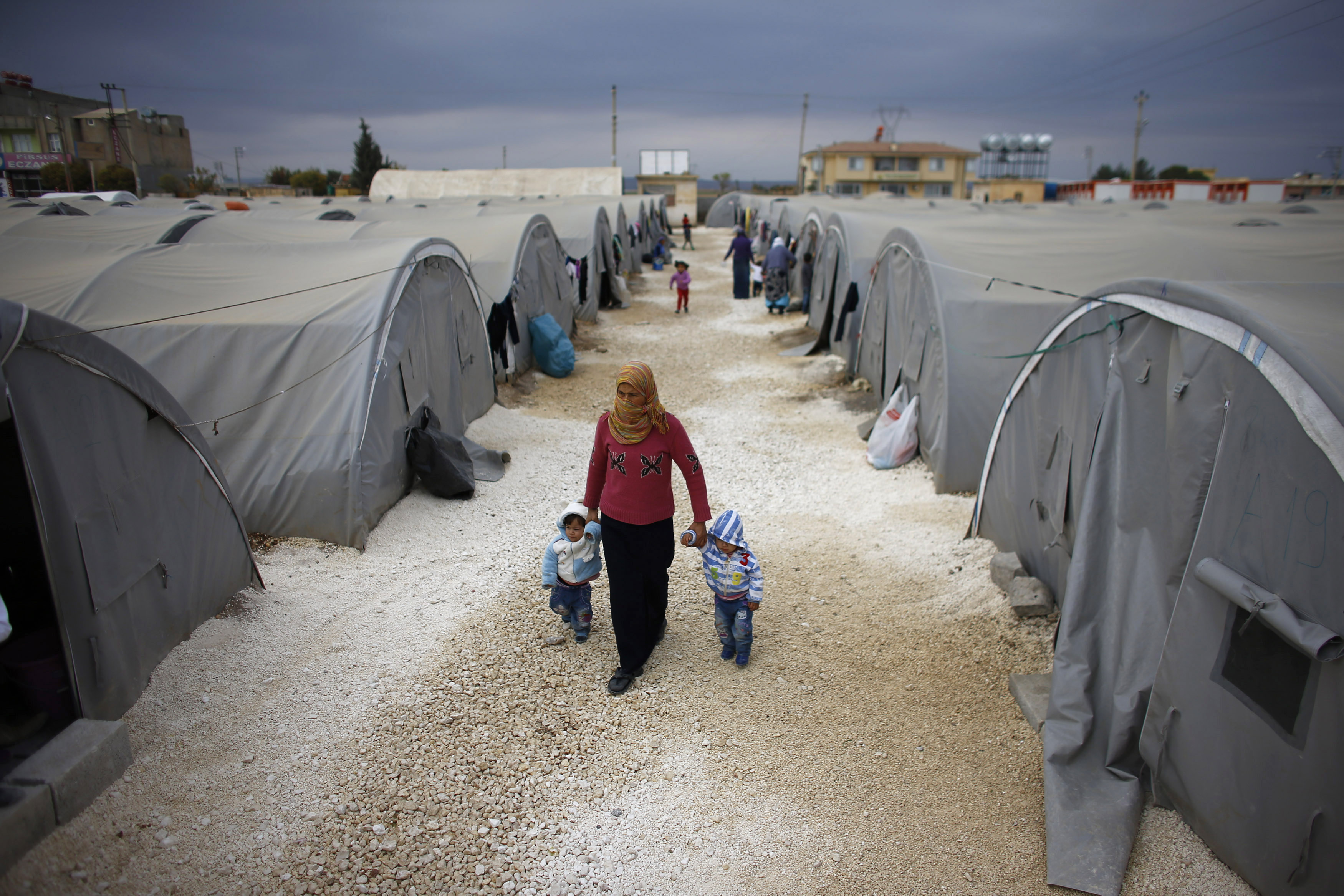What Turkey’s open-door policy means for Syrian refugees | Brookings
The scale of displacement from the Syrian civil war is appalling. As of now, the conflict has generated almost four million refugees and 7.6 million internally displaced people (IDPs)—both groups have approximately doubled in size in the past two years. Another 12.2 million people are in need of humanitarian assistance inside Syria.
The rising level of need was apparent during our most recent trip to the Turkish-Syrian border, our first since October 2013. Until recently, the displacement was driven primarily by Syrian government attacks and repression of civilians. Today, there is additional displacement resulting from the brutal treatment of civilians by the Islamic State (or ISIS) and fighting between ISIS and other opposition groups. The conflict has become more complicated, displacement has become protracted, and solutions to both the conflict and displacement seem further away than ever.
Challenges of an open door
Turkey is now the world’s largest recipient of refugees. Since October 2013, the number of Syrian refugees has increased more than threefold and now numbers almost two million registered refugees. The refugee population has also become much more diverse, especially with the arrival of refugees from Iraq, such as Yazidis, Assyrians, and Turcoman. Large numbers of Kurds have also fled to Turkey as a result of ISIS attacks on the northern Syrian city of Kobani. Only 10 percent of the refugees live in government-run camps; the overwhelming majority live dispersed among cities along the Syrian border, though refugees can be found throughout the country.
While both Jordan and Lebanon have restricted entry to Syrian refugees, the Turkish government has maintained its generous open-door policy. The cost has been high to Turkey. Government officials are quick to point out that they have spent over $6 billion on the refugees and complain about the lack of international support. Nevertheless, since October 2013 there has been visible improvement in coordination between the Turkish government and international aid agencies such as the U.N. High Commissioner for Refugees (UNHCR), the World Food Program, UNICEF, and other international non-governmental organizations (INGOs).
We were encouraged to learn that, although bureaucratic obstacles persist, more INGOs have been able to officially register with the Turkish government. While the government provides all services in the camps, the INGOs play an essential role in assisting the hundreds of thousands of refugees eking out an existence in urban centers—a vital task, since the refugees are likely to remain in Turkey for a long time.
The integration imperative
Assisting the refugees now requires more than providing life-saving aid. Efforts must be made for their integration into Turkish society. In this regard, ensuring access to education and legal employment opportunities are critical issues.
The Ministry of Education is presently implementing a much-needed policy to bring all informal Syrian schools, often run by Syrian NGOs, under its supervision. At the same time, it will expand opportunities for Syrian children to attend Turkish schools, including through second shifts. At the moment, only 130,000 out of some 600,000 school-age Syrian refugee children are in school. As a Turkish education official acknowledged: “whether the refugees stay or return to Syria, we simply cannot afford to allow for a lost generation.” Given the fact that most Syrian children inside Syria are not in school, the country’s future may well depend on the education received by Syrian children outside the country. But education is not only an important issue for Syria’s future, it is also a security issue now. As the Turkish education official pointed out: “without a chance of education, they risk falling victim to radical and terrorist groups.”
Being able to work legally in the country is also essential for the integration of Syrian refugees in Turkey. Currently, many refugees work illegally and for lower wages than Turkish citizens; they do not pay taxes or make contributions to social security. This not only makes the Syrian refugees vulnerable to exploitation, but also generates resentment from the local population. We were encouraged to hear about legislation pending in the Turkish parliament to open parts of the national economy to formal employment for Syrian refugees. This would be a huge step forward for Syrian refugees, and the government needs to be encouraged to implement the necessary regulations to enable Syrian refugees to work in the formal sector. Among the refugees are orthodontists and engineers, teachers and nurses, who have much to contribute to the Turkish economy.
Doing the right thing
The situation is far from perfect. Most refugees continue to live in deep uncertainty and often in very difficult economic and social conditions. There are still huge challenges with respect to improving the social conditions of the refugees. These challenges are compounded by an increasingly critical public opinion about the presence of Syrians. It is difficult to see how Turkey can continue to care for this refugee population and address the mounting challenges on its own in the longer run. There are also sometimes tensions between municipal authorities and the central government; the central government keeps a tight control of information, and there is little clarity about how the $6 billion for refugee services has been spent. The government continues to view international actors with suspicion—for example, it limits needs assessments by independent actors and independent monitoring of the borders. There are still Syrian refugees sleeping on the streets and refugee children begging on corners.
But at a time when European governments are doing everything they can to prevent Syrian refugees from reaching their territories, we were impressed with efforts by the Turkish government and civil society to do the right thing. Syrian refugees are still allowed to enter Turkey. The 25 government-run camps offer an impressive range of services. The government is taking important steps to enable children to go to school, and should be encouraged to move forward with allowing Syrians to access the legal labor market. Right now, Turkey stands out as a beacon of hope in a dismal situation.



